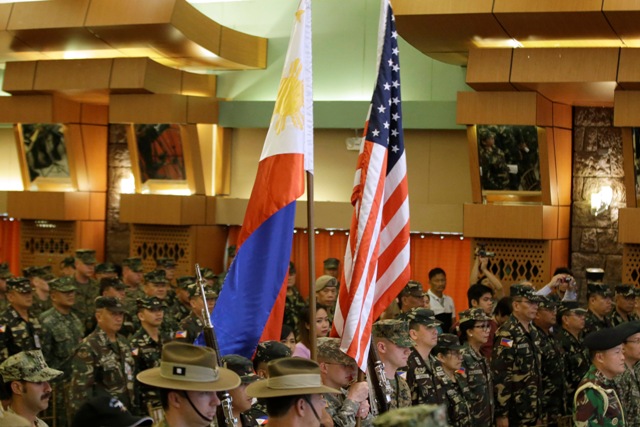It’s no secret the Philippines and the United States are close allies, but is this alliance one of partnership or peonage?

In the midst of the crisis in Marawi, the United States – thru their Manila Embassy – announced the foray of their military into the conflict. This was welcome news for the Armed Forces of the Philippines (AFP), who struggled to retake the Mindanaoan city from Islamic State insurgents.
The Embassy cited that U.S. military assistance was requested by the Philippine government itself, contradicting President Duterte’s staunch anti-American sentiments. However, the Chief Executive revealed that he never asked for their help – adding he became aware of American involvement only after they had arrived.
“I never approached any American to say … ‘Help us,’ Duterte said in a press conference on the Marawi crisis. Despite this, the President grudgingly thanked U.S. forces for their assistance and lamented that: “our soldiers are really pro-American.”
The last line sounded more like a hint, rather than an admission. Carefully construed, Duterte seems to suggest that his “pro-American” military requested for assistance and overruled his authority as commander-in-chief.
The United States military have been providing technical assistance, training and reinforcements to Philippine military operations for a long time. Part of the training is the sending of Filipino military officers to study in U.S. military schools, U.S. military officers also travel to the Philippines to provide assistance under the guise of “advisers”.
The true nature of these exchanges has been subjected to numerous conspiracy theories in the past. Many see it as a discreet way for the U.S. government to control the Philippine government, forging partnerships with Philippine military officers and making them subservient to their own agenda.

It has been argued that high-ranking AFP officials are peons of the American ‘deep state’, rather than subjects of the Philippine chain-of-command.
While the idea may sound far-fetched, history proves that the thought is not unprecedented. The American C.I.A. already admitted playing a part in the ouster of former Chilean president Salvador Allende, a staunch anti-American socialist.
It was also revealed that former U.S. Secretary of State Henry Kissinger was in contact with Argentine officials who carried out the infamous ‘Dirty War’ from 1976-1983. During that episode of Argentina’s history, thousands of anti-government activists were killed or abducted by the state for their alleged involvement in the communist movement.
In light of those facts, the thought of the U.S. military having a foothold in the Philippine armed forces or even in the government itself does not seem at all far-fetched. If the AFP are taking orders from the U.S. ‘deep state’ itself, then President Duterte faces bigger threats than ISIS.

